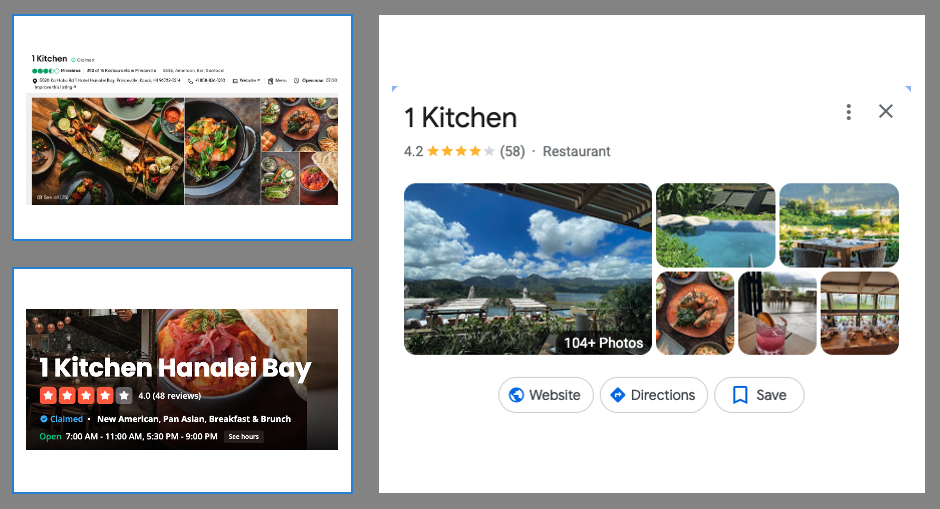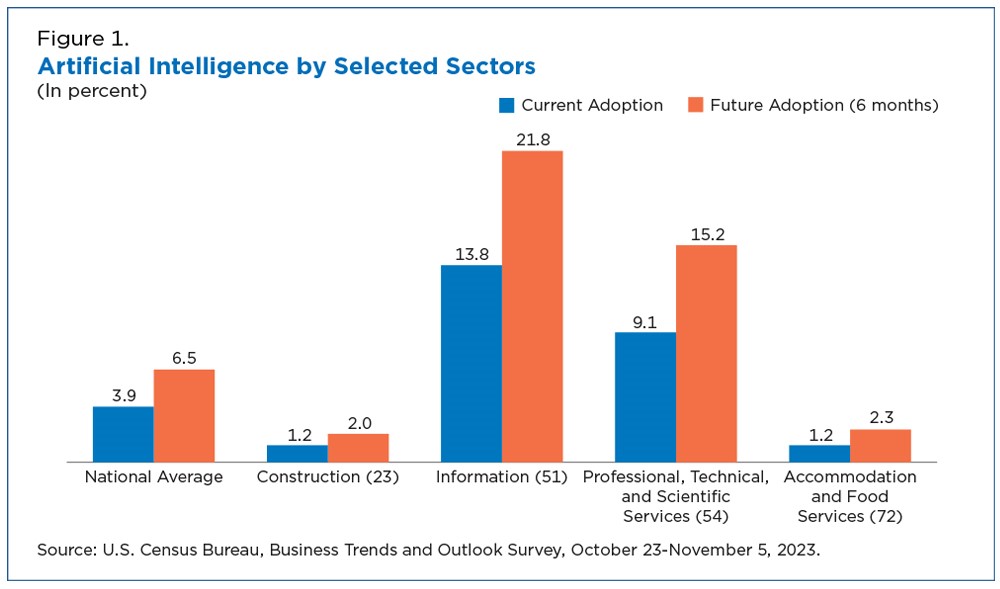X Wants SMB Ads, Google Ratings Inflation, Biz AI Adoption Low

SMBs Won't Save X
When Elon Musk bought Twitter in 2022, there was initial hope that he could improve the service. But, unless you're a Musk acolyte, that quickly gave way to dismay as Musk systematically destroyed billions in brand equity (Twitter–>X) and turned it into a "cesspool of hate speech and disinformation," very publicly alienating brand advertisers in the process. Telling advertisers to "go F yourself," most recently, is probably not a way to lure them back. Previously, the NY Times reported Twitter may lose as much as $75 million "by the end of the year," as advertisers abandon it. Now Musk and nominal CEO Linda Yaccarino are placing hope in SMB advertisers to compensate for the loss of brand spending. Twitter told the FT that "Small and medium businesses are a very significant engine that we have definitely underplayed for a long time ... now we will go even further with it." Reportedly, the company plans to outsource some or all SMB ad sales to third parties (JumpCrew is mentioned). In late 2022, an SMB (broadly defined) survey found that 27% of respondents were currently buying Twitter ads. However that number is probably not representative of the SMB population overall. If it were, Twitter/X would have ~8 million SMB advertisers in the US alone.

Our take:
- Anyone reading this knows how difficult SMB advertiser acquisition is. Relying on third party sellers isn't going to solve the problem in the near term.
- Twitter believes that SMBs are less concerned about the controversies that have troubled larger advertisers, more willing to overlook extreme content and disinformation surrounding their ads. Probably not true in most cases.
- Twitter advertising hasn't distinguished itself as particularly effective for SMBs amid a wide range of more popular social media alternatives.
Google Ratings Inflation
Last week I was in Kauai, on a trip originally planned for 2020. During our time there, I used Google extensively to research restaurants and things to do. What I discovered is that ratings on Google (at least restaurants) are consistently higher than on competitor sites (i.e., Yelp, TripAdvisor). Below is one random restaurant example but it was uniformly true that Google ratings were between 0.2 and 0.5 points higher than on the other sites. One could argue that ratings across sites were generally in alignment so it isn't a major problem. But it was misleading in terms of expectations. Most restaurants were not as good as Google ratings suggested (except in one case). The interesting question is: why are Google ratings higher? Here are a few possible explanations: Google has lots more reviews, making them more hypothetically representative; merchants solicit reviews for Google more often (improving overall ratings); there's more review fraud on Google than rival sites. There may be truth in all of these. And like search results generally, local Google reviews are less useful than they once were.

Our take:
- Mike argues, Yelp "suppresses first time positive reviews" more often than negative reviews, resulting in lower overall scores.
- Yelp survey: "65% ... [said they] would write a more positive review than originally intended if a business asked them to leave a review."
- There's a trust crisis with reviews. People should be careful. But there are no real alternatives to reviews and our research has shown people rely on star ratings/volumes and 66%+ don't actually read reviews.
Only 3.9% of US Biz Using AI
Large enterprises and digital agencies are rapidly adopting generative AI. Last week on the Near Media podcast we discussed ChatGPT and AI tool adoption with Joy Hawkins of SterlingSky and Darren Shaw of Whitespark. They provided some very concrete and useful examples of how ChatGPT was improving productivity and, in some cases, where it fell short. Most of their clients are SMBs and many of them were well informed and excited about AI. However, a recent US Census Bureau survey (more than 200K businesses) found that just under 4% of US businesses are currently using artificial intelligence. (This means the percentage of SMBs using AI is either comparable or lower.) Almost twice that number were planning to adopt AI in the next six months. Current adoption varied considerably by industry, with IT/tech and scientific fields well ahead of others (see chart below). AI was defined as "computer systems and software able to perform tasks normally requiring human intelligence, such as decision-making, visual perception, speech recognition and language processing." Smaller sample surveys from ConstantContact and Bredin, focused specifically on SMB adoption, showed 26% and 17%, respectively, currently using AI tools.

Our take:
- Many of the software tools directed at SMBs have incorporated AI elements. Business owners may not be fully aware of this.
- Generally speaking, ChatGPT is synonymous with AI in the public's mind. So when SMBs hear "AI" they probably are reporting on ChatGPT adoption, which again may not reflect actual reality (e.g., Wix)
- Most SMB AI adoption will come through SaaS vendors incorporating AI (e.g., Web.com) and not from proactive adoption outside of those relationships.
Recent Analysis
- Near Memo episode 136: How Local SEO Agencies are using Generative AI and ChatGPT: tips, tactics and strategies.
Short Takes
- Local E-E-A-T in the real world: examples.
- Google Maps routing error sends people into the desert (WaPo).
- Poll: majority don't like Google Maps' new colors.
- Spammy Google Groups content now ranking (likely mistake).
- Google now supports structured data for vacation rentals.
- Google to pay Canadian publishers $73M a year to keep news in SERPs.
- News publishers abandoning Twitter for Reddit.
- Epic v. Google judge: Google "systematically suppress[ed] evidence."
- OpenAI delays launch of GPT store, Google Gemini release delayed.
- Google's SGE patent, explained.
- Amazon Q aims to be a more personalized business assistant.
- Location intelligence companies, Gravy and Unacast merging.
- Small SMBs bearish on 2024 growth outlook; larger SMBs bullish.
Listen to our latest podcast.

How can we make this better? Email us with suggestions and recommendations.

